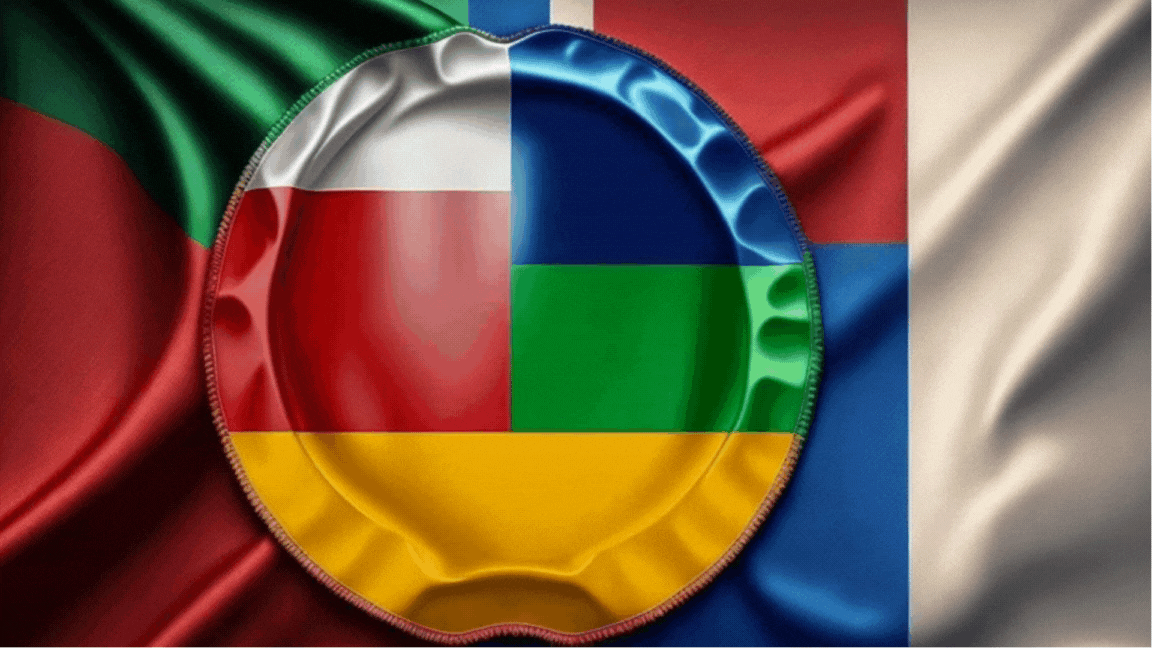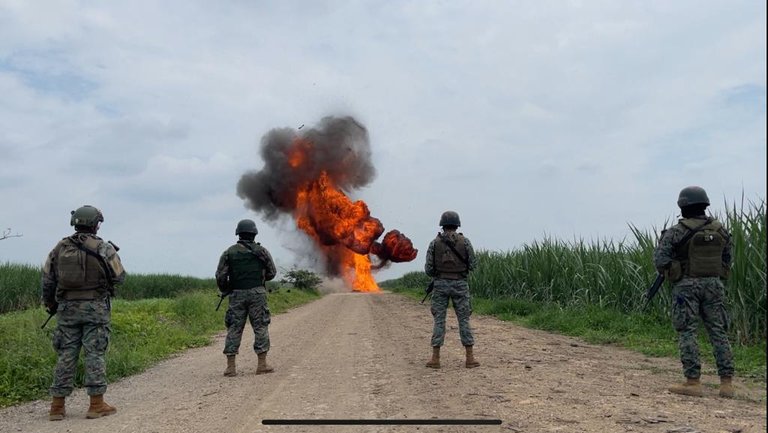The Latin American Report # 166

Ecuador: Organized Crime Strikes Back
A week after declaring the existence of an "internal armed conflict" in the South American nation, identifying some 20 criminal organizations operating throughout the country as "terrorists"—and so placing them squarely in the crosshairs of the Armed Forces—the number of arrests by police and military authorities totaled more than 1,750, with some 160 allegedly linked to acts of terrorism. Insecurity was already unbearable enough in Ecuador, but it seemed to spiral out of control following proposals to counteract it by the young president Daniel Noboa, which included the construction of two maximum-security prisons to hold the most notorious criminals. Adolfo Macías, alias "Fito", and Fabricio Colón Pico, leaders of two of the gangs the government portrayed as terrorists, have been outwitting the authorities for more than eight days, having escaped on separate dates from the prisons where they were being held. Military and police forces have killed five alleged members of criminal organizations, while two police officers were killed at the beginning of this new wave of violence in Guayaquil. In hundreds of operations carried out, some 645 firearms and 40 feeders, around 665 bladed weapons, approximately 15,000 bullets, close to 500 explosives, and more than 5 tons of drugs have been seized. Some cables yesterday reported a faint return to "normality", even in the main bastion of organized crime, the coastal city of Guayaquil, but the events of the last few hours have slapped that glimmer of hope in the face.
A prison guard was killed last Tuesday as he was returning home after being relieved of his duties, according to a report published on X by the government agency that administers the prisons. In this sense, several agents of the penitentiary system expressed their discomfort with the time it took the authorities to release close to 200 of them who were held as hostages last week in seven prisons. "The State waited a long time. We are hurt and to a certain extent full of anger for the treatment (we received)", a leader of the union that brings them together told EFE, from which they have criticized the lack of resources they own to face inmates who not infrequently surpass them in firepower. They have also denounced that those who were taken hostage now have psychological sequels due to the stress they experienced. "We can see that they are affected (in this sense), and in some cases, they are also physically ill. I know of two cases of resignations of colleagues who were held hostage because their families no longer want them to work there", they told the media. About the daily conditions in which guards carry out their work, they pointed out that according to the prison overcrowding, they can end up guarding twice as many prisoners as the standard advises. "We are a carpenter without his chisel and hammer", added with a painful metaphor the referred union officer.
 The authorities continue to achieve certain results in their fight against organized crime. Shown here are members of the Armed Forces overseeing the destruction of a clandestine airstrip that could have been used for illicit activities (source).
The authorities continue to achieve certain results in their fight against organized crime. Shown here are members of the Armed Forces overseeing the destruction of a clandestine airstrip that could have been used for illicit activities (source).Pursuing the bad guys is paid with life
Police reported Tuesday that they prevented an attack with catastrophic consequences when some 130 sticks of dynamite were found outside a community police station, which is also relatively close to a busy market in downtown Quito. At the time of reporting, the source of the potentially deadly charge had not been traced back to one of the criminal gangs that plague the city. Meanwhile, on Wednesday, in Guayaquil, a renowned prosecutor investigating the assault on a television station last week—an event that tried the patience of the executive branch—was killed by hit men while traveling in his car. "Faced with the murder of our colleague César Suárez (...) I will be emphatic: organized crime groups, criminals, terrorists will not stop our commitment to Ecuadorian society", said the Attorney General, a figure not exempt from controversy and criticism whose complaints against Colón Pico for alleged threats against her in a way forced Noboa to strengthen his position against organized crime earlier this year. "We reject all forms of violence as a response to the conflict we are experiencing", said the head of the defense portfolio. The focus of Suárez's mission at the time he was killed was to determine the group behind the assault on the Guayas television station.
The quick regional roundup
Washington announced yesterday the imposition of sanctions against former Guatemalan President Alejandro Giammattei and his three adult sons, denying them the possibility of entering the United States for their "involvement in significant corruption". Let's remember that if anything, 72 hours have passed since Giammattei left Zone 1 in Guatemala—which houses the main government institutions—in a chaotic transition where forces of his political gang—in Congress and I assume also in the judiciary—attempted to stop the inauguration of Bernardo Arévalo, who brings some fresh wind to a country ruined by corrupt people like Giammattei. "The State Department has credible information indicating that Giammattei accepted bribes in exchange for the performance of his public functions during his tenure as president of Guatemala, actions that undermined the rule of law and government transparency", reads a communiqué attributed to Matthew Miller, spokesman for the building that Antony Blinken directs. Anyway, in a classic move of someone who knows he is dirty, Giammattei was sworn in as a member of the Central American Parliament, a play that guarantees immunity to the conservative politician for four years.
Yesterday, the Government of La Paz signed an agreement with the Chinese consortium CBC for 90 million dollars, which will be used to start up a pilot plant dedicated to the direct extraction of lithium, a key resource of which the country has potentially the largest reserves in the world. The commitment with Beijing envisages the exploitation of up to 2,500 tons of lithium carbonate per year, in a two-phase process that will begin with the referred pilot plant in the promising Salar de Uyuni, in the department of Potosí. "This is the second agreement that our company YLB has already signed with these companies that have decided to come and bet on Bolivian lithium to continue with the industrialization process", said President Luis Arce during a protocol act in the capital. Accessing the lithium deposits distributed between Argentina, Chile, and Bolivia is one of the most tense points in the relations between China and the United States, which are trying to win for themselves the biggest slice of the cake. Washington has been explicit in its bet, pointing to the Asian giant as an "unreliable partner". Bolivia and to some extent, Chile have been tipping the balance in their deals in China's favor.
Kristalina Georgieva, chief of the global lender said yesterday that she had a "very good meeting" with Javier Milei, the debuting Argentine president who has caused a socio-political earthquake in the light blue and white nation. Georgieva and Milei met in Davos, in the framework of the World Economic Forum. She and the "first libertarian liberal president" discussed Argentina's "profound economic and social challenges and the decisive steps being taken to reduce inflation, promote private sector-led growth, and use scarce public money to help the most vulnerable people". A gigantic package of laws sent by Milei to the legislature is currently being debated in Congress, which is strongly opposed in many of the areas where he intends to make profound changes to the lives of Argentines. In his speech in Davos, Milei appealed again to his well-known rhetoric against the left. "The main leaders of the Western world have abandoned the model of freedom for different versions of what we call collectivism", he said, pointing out later that "sectors of the political and economic 'establishment', some due to errors in their theoretical framework and others out of ambition for power, are undermining the foundations of libertarianism, opening the doors to socialism".
And this is all for our report today. I have referenced the sources dynamically in the text, and remember you can learn how and where to follow the LATAM trail news by reading my work here. Have a nice day.


Is there any chance that the IMF and Milei might come to a rapprochement? They seem to have very different worldviews.
I agree, although according to the statements made by IMF officials, there seems to be good harmony. I recently commented here that indirectly, while they in Washington were praising Milei's policies with great fanfare, they were distancing themselves from the previous administration. From my perspective, what Milei is promoting certainly corresponds to what the fund somehow demands.
This was the latest report from the IMF regarding Argentina.